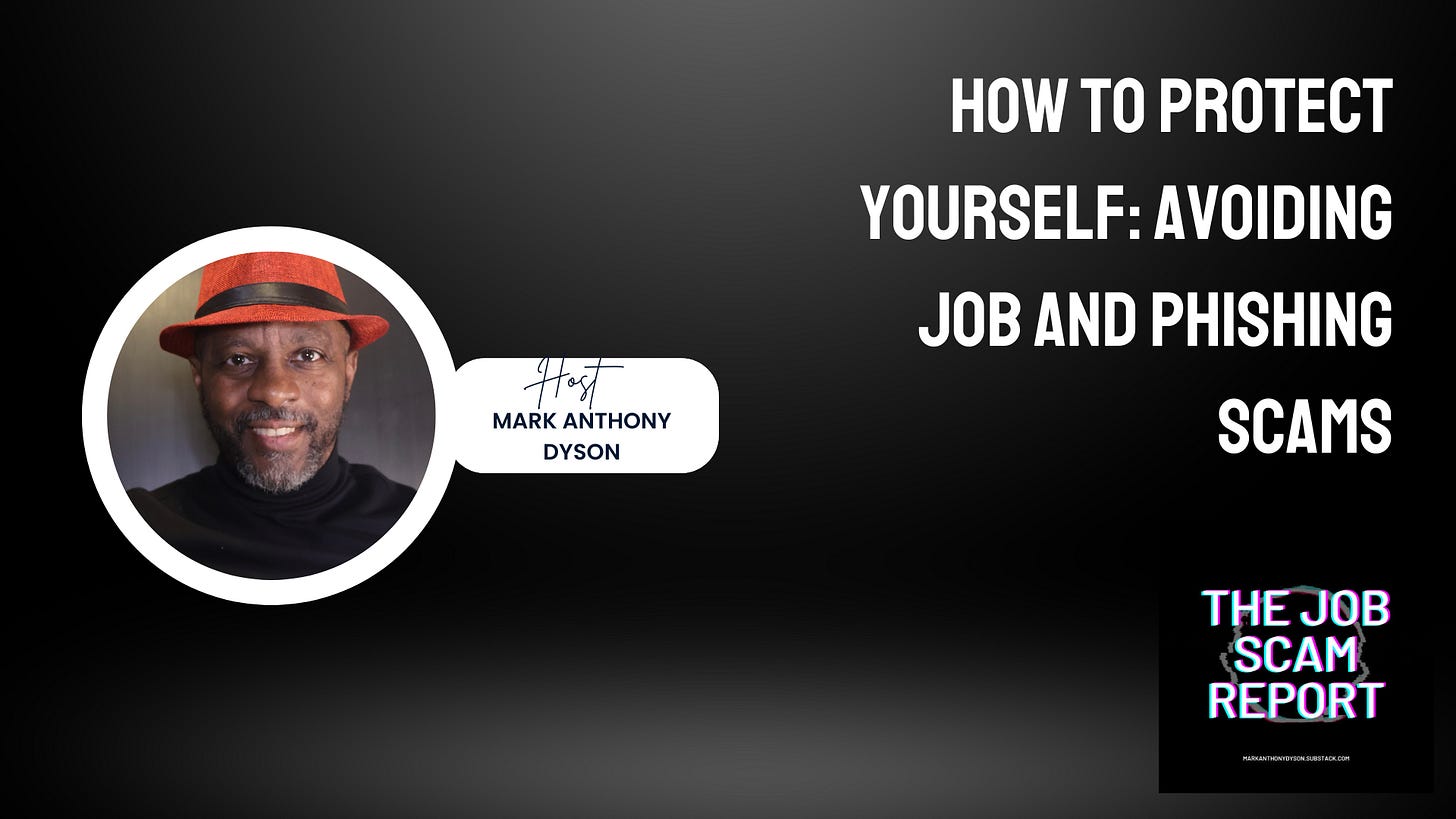"Have you ever felt a rush of excitement upon receiving a job offer that seemed too good to be true?”
Many college students will face this dilemma, especially new grads.
I participated in a panel a year ago at St. Xavier’s University in Chicago. I was joined by several other panelists: Lauren Milligan, Dr. Vincent Alexander Davis, and moderator James Miller. The featured clip on this week’s episode focuses on job scams and how students must navigate them.
On this panel, I recount how job scams have evolved from targeting older individuals with simple, email-based scams to more sophisticated methods that exploit technological advancements. Scammers now seek not just money but also valuable personal data, employing tactics such as creating fake websites and sending convincing emails that appear legitimate.
I highlight cases like the security breach at Purdue University and the $ 25 million stolen from a company via deepfake video calls, demonstrating that scams can deceive even tech-savvy individuals. He advises vigilance, emphasizing that anyone, regardless of their technical knowledge, can fall victim to these scams.
James and Lauren describe common scam tactics, such as demanding application fees or asking for equipment purchases from third parties, which legitimate companies never do.
Lauren and I emphasize the importance of additional verification steps, such as reverse-searching recruiters’ profile pictures and verifying LinkedIn profiles for authenticity.
Lauren underscores that legitimate job offers can come through LinkedIn or Indeed, but skepticism is necessary. I point out scammers are expert marketers, preying on job seekers’ desperation with attractive but fake offers.
Vince reminisces about past scams done via newspaper ads, noting how modern scams are more complex to detect. He adopts a cautious approach of deleting and blocking suspicious communications, but acknowledges the importance of reporting these incidents.
The discussion encourages leveraging personal networks as a safety mechanism, but advises remembering that even friends or family might fall for scams.
Lauren and I recommend increasing awareness and asking many questions when something seems too good to be true, emphasizing the need for critical thinking and vigilance.
Lauren concludes by quoting a Washington Post article, stressing that no one is too smart to get scammed, illustrating the relentless and evolving efforts scammers put into deceiving even the most careful individuals.
FINALLY…
I just published a new toolkit, “The Anti-Job Scam Toolkit: Know & Avoid These Risky Red Flags.”
For those with paid subscription access, it’s free of charge. This toolkit includes a checklist of red flags that you can quickly review to help you identify potential issues in text, email, or LinkedIn posts. It’s one of many guides and tools to come to our community to help you grow your awareness and knowledge of job scams.
To access these special offers, you’ll need to purchase a monthly subscription at a minimum. This helps me to continue working here on Substack. These resources will be updated, while others will be newly added.














Share this post